- Home
- slideshows
- miscellaneous
- 13 things people should do to save for an international retirement, according to Americans who retired abroad
13 things people should do to save for an international retirement, according to Americans who retired abroad
Seeing a financial planner can help prepare for retirement abroad.

Finding out the country's residency requirements in advance is crucial to a smooth transition.
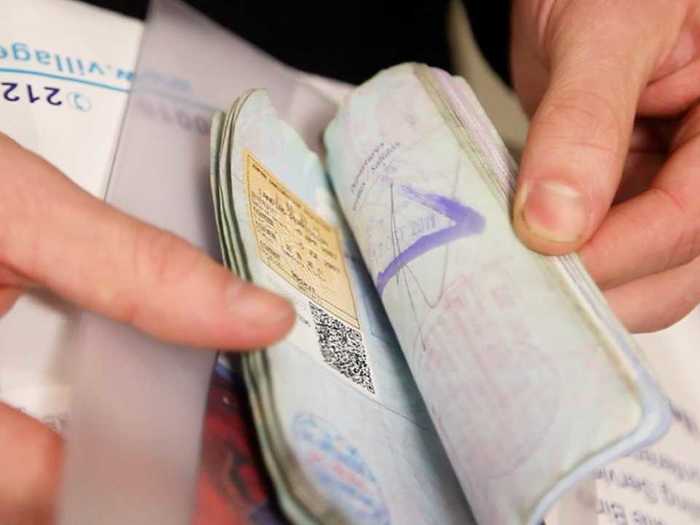
Susan Schenck, 63, formerly a resident of San Diego, moved to Cuenca, Ecuador, nine years ago with her late husband. She's since written a book about her experience, "Expats in Cuenca, Ecuador: The Magic & The Madness."
She said to make sure to research residency requirements in advance, such as if your new country will require a minimum income.
"Here, it is only $800 a month," she said. "Also, save several thousand for your flight, initial housing, and lawyer fees to get a long-term visa."
Schenck also recommended exploring housing costs in your desired location prior to retirement, as well.
"Here in Cuenca, Ecuador, you can rent a house for as little as $400 to 800 a month, an apartment for $300 to 600, and $1,000 a month could get you a furnished penthouse," she said.
In addition to researching the cost of living and income requirements, knowing how moving to a specific country will impact your tax obligations in the US is imperative. Jill Gonzalez, an analyst at WalletHub, told Business Insider in an email that some — not all — countries even offer special tax breaks or benefits for retirees.
"Retiring overseas can also affect your US tax obligations," Gonzalez said. "This is why you should seek advice from tax specialists both in the US and in the country you want to retire."
Doing trial-run vacations can help assess the cost of living abroad.
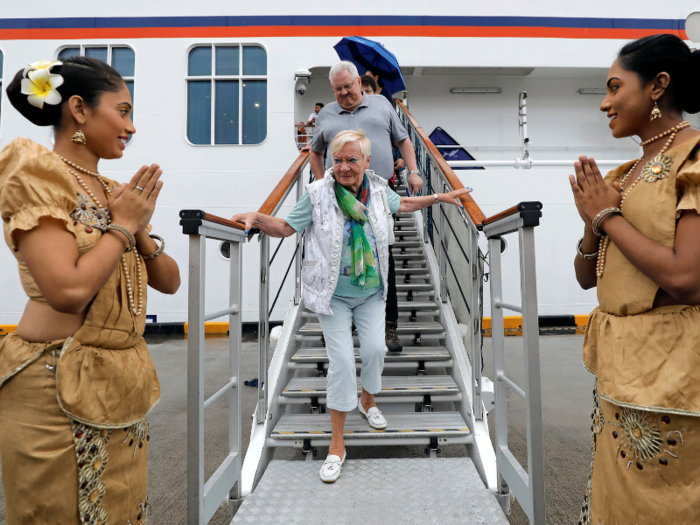
Before they retired, McGregor Kortan and her husband said they explored how to "live like locals" on vacations they took during their working years.
"Instead of all-inclusive resorts, we opted for studio apartments in mom-and-pop hotels to get an idea on how much it would cost to live abroad," McGregor Kortan said. "These trial runs were vacations, but also investments, that helped us realize we could realistically live a great life abroad for far less money than is needed to live in the US."
For example, they said the cost of living is much cheaper in many beautiful foreign countries, such as Mexico, Malaysia, and Portugal, among others.
"Our rent for a modern, centrally located, one-bedroom apartment was between $500 to $900 a month," she said. "And in some countries, it's actually less expensive to dine out than it is to cook at home. You can get a great meal in Vietnam or Thailand for as low as $2, if you really wanted to stretch your money."
Saving a high percentage of your total income leading up to retirement can be an important step in ensuring ease and comfort during your golden years.

Jennifer and Tim Dombrowski, 39 and 38, respectively, lived in several cities in the US before retiring abroad in Bordeaux, France. They managed to save 50% of their income before retiring.
Before retiring, they set aside as much as possible while Tim served in the US Air Force, she said. And, initially, they were saving for retirement based on costs of living in the US, which is more expensive than their current lifestyle, Dombrowski said.
"The big contributors were that we had no debt, and from 2009 to 2016, we lived abroad with the US Air Force," she said. "We received benefits, like allowances for housing and utilities, so we had very little out-of-pocket living expenses. We set aside 50% or more of each paycheck for the past 10 years, which is the time frame we saved the majority of our retirement funds."
She said they put the money in a combination of savings accounts, investments, and retirement funds.
Before shelling out a lot of money on a home abroad, consider renting a home abroad first.
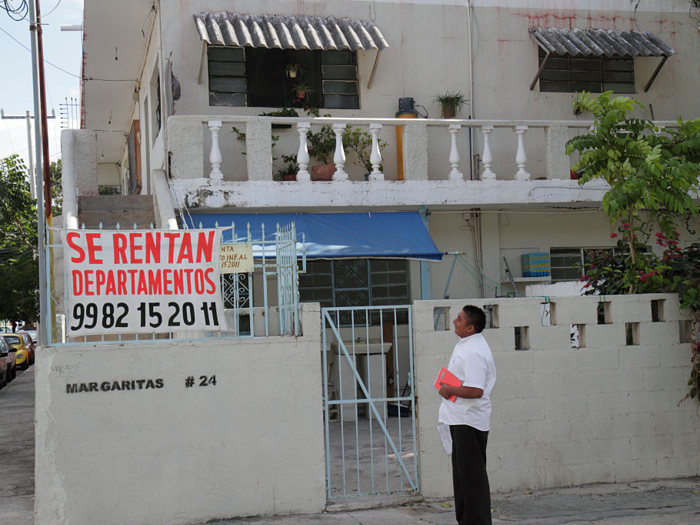
John and Lynne Drahan, ages 77 and 70, suggested renting a property in your chosen area before buying.
"We are in our second village and home, and it is only a couple of miles from our original home, but much nicer for us," they said.
Selling your house in America can help fund a life abroad.

Betsy Ball and her husband, Greg, both 56, said she and her husband invested the money from the sale of their house in the US and that the income helps with their expenses abroad.
"Selling our house has been great for this style of living because it reduces our fixed expenses dramatically," she said.
Familiarize yourself with local laws regarding income, one couple suggested.

You may still be earning income after you retire abroad. For example, Ball and her husband run a business wherein they create custom European itineraries and lead small group trips in Europe.
"We are enjoying helping other people travel with our business and it's great to earn extra income so we can keep learning and keep traveling," she said. "If you want to earn money, you could become certified to teach English and teach online, be an online consultant, or start a business. But make sure you comply with local laws regarding income and pay taxes as appropriate."
Keeping a balanced portfolio can help supplement retirement funds.
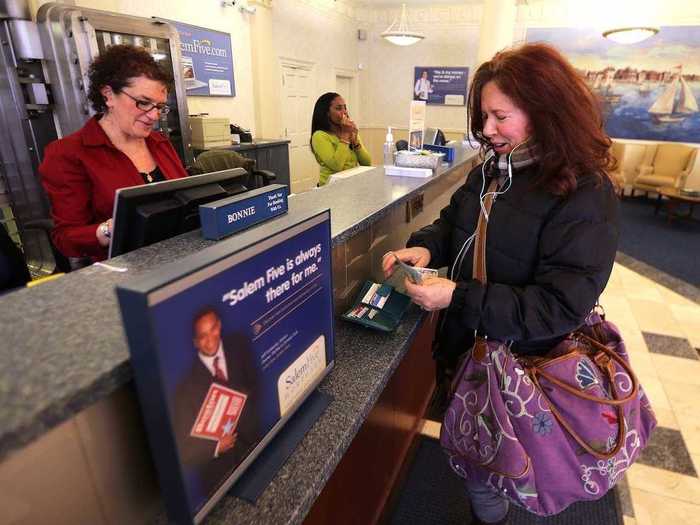
Dombrowski said that she and her husband kept a balanced portfolio with some riskier investments, while also having ones that earned less but were reliable and less likely to take major dips with the market.
"We also kept a money market account with Capital One, which offered us a high savings rate of 2% on balances over $10,000," she said. "We both contribute the Roth IRA maximum each year, which for 2019 is $6,000."
Additionally, they did things like signed up for Bank of America's "Keep the Change" savings program, which rounds up purchases you make with your debit card and automatically transfers the difference to your linked savings account.
"It's like collecting change in a jar for the past 20-plus years we've been customers," she said. "That change really adds up."
Putting the maximum amount in your 401(k) plan for years can mean a larger budget for your later years.

According to the US Social Security Administration, more than half a million Americans who live outside the US receive Social Security benefits. Gonzalez said that saving for retirement abroad isn't too different from saving for it in the States, but said the earlier, the better.
"If you have a work retirement plan, start investing in it," she said. "If your employer matches your 401(k) contributions, take advantage of that, because it's basically a 100% return on your money. Aside from the 401(k) plan, there are also other options, like a traditional or Roth IRA."
"We started saving for retirement when we started our full-time careers when we were in our 20s," Ball said. "We faithfully put money away in our 401(k) plans at the maximum levels so our employers would match our investments. We also hired an investment advisor early on, knowing that we needed a plan."
Be prepared to adjust your day-to-day budget leading up to retirement, too.

Dombrowski said retiring abroad is really all about smart financial planning.
"The first couple of years of being an adult and working, we weren't the most financially responsible," she said. "But once we got debt-free, we could put a lot of money away. When you start seeing the return on your investments, it's a motivator to put more and more money away. And we definitely don't live frugally."
She said it's all about moderation.
"We splurge on experiences and we have nice things, but we never enjoyed living paycheck to paycheck," she said. "You don't need to eat out every night of the week. You don't need Starbucks every day. You don't need a new outfit every time you go on a trip."
Dombrowski said to really look at where your money goes and cut back on some daily things that you really don't need.
"You'll be shocked how much you start to save," she said.
In addition to cutting down on small expenses and paying off debts, doing some research beforehand on how expensive it will be to live in a specific country is crucial to planning just how much you need to save to retire comfortably.
"Depending on the location you want to retire to, it can be a lot cheaper to retire overseas," Gonzalez said. "If you already have an idea of where you'd like to retire to, look at the exchange rate in that country, and do some research on living costs. This should allow you to determine how much money you'll need for retirement."
If you want to work during your retirement years, try out a few locations until you find one where you feel most supported as an expat entrepreneur.

Neill Kramer, 62, lived in the San Francisco Bay Area for over 20 years and then moved to Washington state, where he thought he'd retire, but it was more expensive than he'd anticipated, he told Business Insider. Instead, he decided to move to a village in Bali, Indonesia.
"When I was thinking about retiring, I also considered Asia," he said. "So I spent a month in Thailand in 2015, a month in Vietnam in 2016, and a month in Bali in 2017. I loved Thailand and Vietnam, but when I spent a month in Bali, I realized how international it is and how supportive the local culture is of expat entrepreneurs. So the idea of living abroad seemed more manageable in Bali than in Thailand or Vietnam."
He said he didn't use a financial planner, but started minimizing his expenses as best he could. Visiting Bali for a month first also gave him a rough idea of some of the costs. Now, for additional income, he and his partner run Ohana Retreat Bali.
Volunteering in exchange for things like room and board can be a way to make an international retirement more affordable.

If living completely off savings in your later years feels impossible, fear not. Some couples cut costs on things like living expenses by trading labor for things like housing.
To save money while living abroad, Ball and her husband volunteer in exchange for room and board.
"We use WWOOF (World Wide Opportunities on Organic Farms), Workaway, and TrustedHousesitters to extend our travel budget," she said.
And familiarizing yourself with healthcare systems abroad — which are often less costly than the US — is necessary.
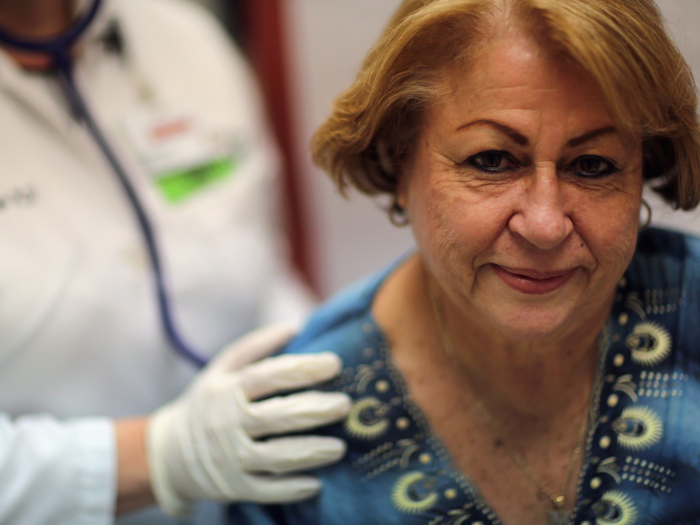
McGregor Kortan said it's important to be aware of healthcare systems abroad, and how they're often much cheaper than the same procedures in the US.
In her third year of travel with her husband, McGregor Kortan was diagnosed with breast cancer at the age of 46 and had a double mastectomy in Zagreb, Croatia.
"Using fairhealthconsumer.org, the total cost for a double mastectomy in Cincinnati would be $17,774 out-of-network, $8,667 in-network," McGregor Kortan said. "That doesn't include the price for a highly specialized stereotactic biopsy — which I had — and it also does not include the price of the mammogram."
She said her total out-of-pocket cost in Croatia, with no insurance, was just under $10,000 for everything — including all doctor follow-ups, a private clinic recovery room after surgery, and her own private nurse. Today, McGregor Kortan is healthy with no sign of cancer, she said.
"We know that tomorrow is never guaranteed, and that's one reason we travel the world now — because life is now," she said. "We don't want to wait to live it."
Popular Right Now
Popular Keywords
Advertisement